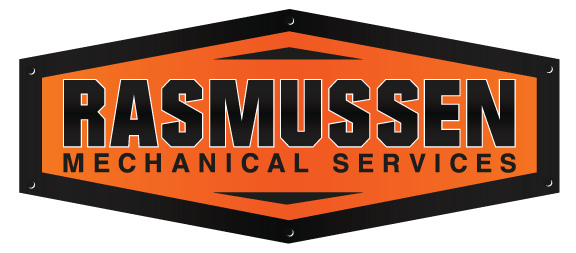Having spare parts for your boiler’s mission critical components is a great way to save downtime when something fails. Not to mention it saves money on emergency calls, expedited shipping, and process outages. But what parts should you consider having on hand? In this article we break down 15 key boiler spare parts every boiler operator should have on their shelf.
Note: Some mechanical equipment takes much longer to procure than others and this can vary from region to region. It is important to keep in touch with your supplier about which key pieces of equipment have longer lead times. This will help you avoid costly downtime should an emergency arise. Further, the proximity of your facility to local supply stores may determine the breadth and depth of your boiler spare parts inventory.
Need Boiler Parts? Call Our Parts Team At:
712-255-1609
Controls and Safety Devices
ASME CSD-1 outlines the requirements of controls and safety devices for automatically fired boilers. These critical safety devices and controls are a great ‘first blush’ at the boiler spare parts that should be on the shelf. Operating a boiler without them would be both illegal in most states, and downright dangerous! Let’s start with a look at the highlights from ASME CSD-1.
1. Flame Detector
This critical device is known to be troublesome and one of the most common parts to keep on hand. From home furnaces, to large industrial watertube boilers, the flame detector prevents the equipment from filling with raw fuel when a flame doesn’t exist. There are many technologies used for flame detection. In large boilers it is often a ‘flame scanner’ while in commercial applications it may be a ‘flame rod’. Certainly something that is required to safely run any fired equipment. The sensitive nature of these devices warrants having a spare ready to go in the event of a part failure.
2. Auxiliary and Primary Low Water Cut-Off Switches
These devices play a critical role in detecting low water conditions in the boiler. They also initiate a master fuel trip to shut the burner off when these conditions arise. Low Water Cutoffs generally have a ten-year expected life if they are thoroughly cleaned on an annual basis. If maintenance is neglected, low water devices will need to be replaced much sooner, and they will be significantly less reliable in operation.
These level switches are required to run the boiler safely. Unfortunately, choosing between illegally jumping a faulty switch and having a boiler down is a decision too many boiler operators are forced to make. The best way to ensure operators can make the right decision, is to keep a spare on hand. For float type switches, this could be just a spare head assembly and gasket. For probe type switches, this could be a spare probe and relay.
3. High Pressure / High Temperature Cutout Switch
This simple pressure switch (for steam boilers) or temperature switch (hot water boilers) can put your boiler out of commission. Combustion safety codes require this safety switch on all installations. Even if you can get it shipped to you quickly, don’t let this relatively inexpensive part be responsible for production loss.
4. Pressure Control Device
In large systems, this is a part of the PLC based controller. In smaller systems, this may be a stand alone ‘pressure controller’. Without this device, an operator would have to watch the boiler pressure gauge and manually adjust the boiler firing rate to maintain system pressure. Doing all of this without tripping the boiler or lifting the safety valves. Depending on the installation, this can be a difficult task and certainly not a reliable method of fine pressure control. Keeping a spare pressure sensor and loop controller or a spare PLC on hand, preloaded with the required software can be a life saver.
5. Water Level Device
Different boiler feedwater control setups use different technologies and devices to control water level in the boiler. From simple on/off set-ups running off a switch, all the way to dp level sensing devices tied to a loop controller or PLC. The fact is, running a boiler without feedwater controls requires a full time operator to adjust a manual valve. As we know, most boiler rooms don’t have operators standing around with nothing to do. So it makes sense to have a spare level sensing device, and loop control device on hand should something fail.
6. Safety Relief Valves
Did you know that safety relief valves are required by code to be tested annually? Some companies instead choose to have a spare set of valves that can be rotated in at the scheduled annual outage. This allows the valves that were in operation to be sent out for certification and testing. Safety valve springs can degrade over time causing the valve to vent even when pressure is not at set point. For these reasons it is a good idea to carry a spare should you need to have these replaced in operation. Getting new valves sized for your boiler at your set points can take days even if expedited.
7. Fuel Safety Shutoff Valves
Main valve, secondary valve, and for large gas fired equipment, a fail open vent valve. Don’t forget the pilot safety shutoff valves too. These valves ensure that fuel doesn’t slowly leak into the boiler when it is off. This prevents it from filling with fuel, causing an explosion or runaway boiler fire! Imagine lighting a boiler that has had gas slowly leaking into it for hours. Or imagine shutting down a boiler that has a furnace flooded with Number 2 oil. Not a good scenario. When these critical valves fail or leak, you’ll want to replace them ASAP.
For some larger valves, you may just keep extra proof of closure switches and a valve rebuild kit on hand. This prevents you from needing a full assembly. However, be aware that some of these valves have extremely long lead times. It isn’t common for these valves to be irreparable, but if it happens, that boiler could be out of service for a long time. Of course, if your annual maintenance plan includes bubble testing these valves for tightness, you can sleep more comfortably.
8. High and Low Gas Pressure Switches
While we are talking fuel, these 2 pressure switches are critical to ensuring that the boiler isn’t getting too much or too little gas. Without these switches, your boiler could go too lean or rich and cause major damage or an explosion. Keep one handy and have a qualified technician set your spares during your next burner tune so that the switches are ready to go. Keep in mind, the switch set point may be boiler specific, so presetting them may require a spare high and low for each boiler.
9. Combustion Air Switch
What happens if the boiler goes to light but the fan doesn’t spin due to some failure? Nothing, because the combustion air switch prevents a burner from opening the fuel valves if there is no air flow. Yep, this simple flow switch can stop your boiler in its tracks. Why wouldn’t you keep a spare? Keep in mind, some systems use other sensors for this function and may not have a standalone combustion air flow switch.
Operational Boiler Spare Parts
While not required by any codes or laws, you’ll be glad you had these Boiler Spare Parts around if or when you need them.
10. Gas Regulator
OK, so most people don’t stock a full gas regulator, but they can be hard to come by when you are down and out. So, a full rebuild kit of the soft parts and a manual are a good thing to keep handy. Oh, and by the way, in the spring, check the regulator vent lines to ensure you have a bug screen. Every year we have a boiler that won’t light, only to find it’s caused by insect nests in the regulator vent line.
11. Igniter Parts
Wire, spark plug, transformer if you are so inclined. This isn’t your mother’s barbecue. Gone are the days of lighting an oily rag on a stick to get a boiler going. Don’t be down and out because you can’t light the pilot.
12. Gaskets
Gaskets are replaced frequently, and made of different materials depending on if they reside on the fireside or water side of the boiler. These generally are replaced every 12 months or during any inspections done on the boiler. Because these are replaced so frequently, it is a good idea to carry replacement gaskets on hand. This will also shorten downtime should a leak occur.
Gaskets are low cost enough that it is not worth firing up a boiler again on old gaskets. Also, be aware that some gaskets are only meant to be in service for 1 year! Be sure to swap these at every annual inspection. The lost time cooling, draining, and refilling alone pays for storing a few new gaskets in the boiler room. Keep 2-4 full sets of manway and handhole gaskets on hand for outages or leaks. Keep a roll of the appropriate fireside gasket tape or rope on hand as well.
Get Your Free Spare Parts List
13. Boiler Level Sight Glass and Sight Glass Packing
This small part can help you identify quickly if you have the correct amount of water in the boiler, which makes it critical. Even a small leak from the boiler sight glass or packing will affect the water level reading, leading to a very unsafe operating condition. It is critically important that your sight glass is clear and clean, not leaking and there is no evidence of thinning on the glass. You should never let the sight glass get to a point where it becomes hard to read. If it’s so dirty you can’t blow it down, then it’s time to replace. By carrying this part you can switch out the sight glass should an issue arise. And like gaskets, reusing old parts is not worth the risk. Replace packing and tubular gage glass at least annually and train your operators to do this themselves.
14. Valve Packing Sets
Sure, you can keep running your boiler even if the packing on a couple valves are leaking. And yes, you can tighten the snot out of the stem packing and get small leaks to stop. However, actuated valves will not function properly with overtightened packing. So, it makes sense to keep a spare packing set for all control valves. If a leak can’t be stopped by snugging up the packing gland, it may be time swap that packing set out.
15. Observation Port Glass and Packing
All operators know they are supposed to observe the flame during their rounds. However, we often find the observation port glass is filthy, sooty, broken, leaking, extremely HOT or all of the above. That just seems ridiculous for how cheap it is to give yourself a good view of the flame through a clean glass. That way you can spot leaks, cracked refractory, and damaged burner heads while they are still minor issues! It just makes sense to have a spare for your next outage.


Carrying Cost vs Downtime
One thing to consider before making a purchase decision on any boiler spare parts is the cost to carry vs the cost of downtime. While downtime is generally very expensive, this should still be considered on a case by case and equipment specific basis. If, for example, your facility has full boiler redundancy, this could reduce the need to keep all manner of spares on hand. Likewise, if your facility is very near suppliers who regularly carry these parts, this may be less of an issue under normal circumstances. Ensure your facility has a contingency plan with contingency boiler connections and you will have a robust set of options when problems occur.
Storage, Leadtime and Emergencies
One good way to approach this is to first identify the most critical components of your system. Then determine the associated costs of carrying that component. Then consider the space available to store that item and the lead time required to obtain that item should an emergency arise. If the item has a long lead time and you have the storage capabilities, you should carry the spare part. Even seemingly easy to acquire parts with shipping time of a few days can cause an unnecessary outage. It is unfortunate when we see facilities suffer outages due to the lack of a $200 or $500 part.
One tool that is available to help you make an informed decision is the Critical Spare Parts Calculator. Even if you don’t know your exact costs, this tool will allow you determine whether you should consider carrying a specific boiler spare part.
Need Help?
Do you need to know which boiler spare parts have longer lead times than others? Not sure what parts are critical for your mechanical equipment? Reach out to the experts at Rasmussen Mechanical Services and ensure your facility is ready should an emergency arise. Call us at 1-800-237-3141, email sales@rasmech.com, chat with a support agent, or contact us online.
P.S. We know this is more than 15 parts, but “15 to 25 spare parts you should really have” isn’t a catchy tagline.



